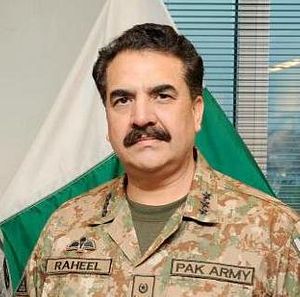Recently, Pakistani Prime Minister Nawaz Sharif nominated Lt. Gen Qamar Javed Bajwa as the new Chief of Army Staff (COAS). The outgoing COAS, General Raheel Sharif, is set to retire on November 29. Following the change-of-command, General Sharif will indisputably leave behind a respected, popular, and exemplary legacy throughout the country, particularly on counterterrorism.
As the 15th Chief of Army Staff, assuming office in November 2013, Sharif was the architect of Operation Zarb-e-Azb, a domestic offensive launched by the Pakistan Army against terrorist groups such as the Tehreek-e-Taliban in 2014. His leadership helped curb the ascendancy of these terrorist groups. While initially criticized for his lack of experience regarding battleground operations, Sharif successfully silenced his critics by improving the situation on the ground, improving outcomes for Pakistanis who had grappled with extremism and continued to render numerous sacrifices in the line of terrorism.
Other evidence supports Sharif’s internal security efforts. As per the 2016 Global Terrorism Index, Pakistan has witnessed a slump in terrorist-related activities within the country compared with the previous year, seeing 45 percent fewer attacks and 38 percent fewer deaths due to terrorism. In addition, Sharif’s tenure resulted in a crackdown against militant and criminal activities in the metropolis of Karachi, which had previously been subject to crime, targeted killings, and violence. He has been met with great approbation from the Pakistani public as well as politicians from across the spectrum. Unlike previous generals, Sharif has been supportive of the civilian government of the Pakistan Muslim League (Nawaz) while simultaneously understanding the role of corruption as a contributing factor towards extremism. His timely retirement and professionalism also sets an ideal precedent in Pakistan.
In light of this, his legacy also puts considerable pressure on the incoming COAS, Lt. Gen Qamar Javed Bajwa, to ensure that the country’s counterterrorism efforts continue unabated and the multifaceted threats are addressed. Counterterrorism efforts need to be complemented by deradicalization plans and successful rehabilitation of the displaced. Moreover, more attention must be devoted to combating the Islamic State, which has accepted responsibility for recent acts of terrorism within the country. What will be equally important for the incoming COAS is to ensure that bilateral relations with Afghanistan continue to improve on the security front. Finally, the new COAS must ensure that ongoing Indian aggression along the line of control is curbed, checked, and countered effectively.
Sharif leaves the COAS’ office as a respected, popular, and professional commander who served his country with dedication. The legacy he leaves behind needs to be tended by his successors to ensure that Pakistan continues to make gains in countering terrorism and successfully ensures the safety, sanctity, and security of its citizens across the country.
Hamzah Rifaat was a 2016 South Asian Voices Visiting Fellow at the Stimson Center and has represented Pakistan as a member of the CTBTO Youth Initiative of 2016 in Vienna.

































